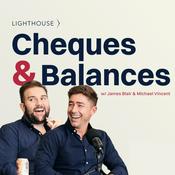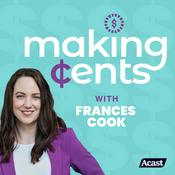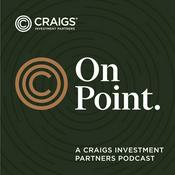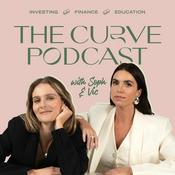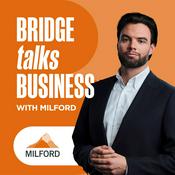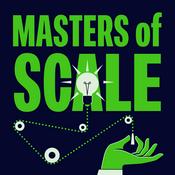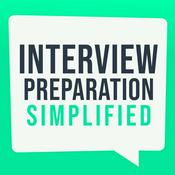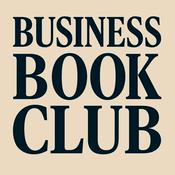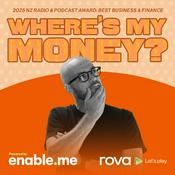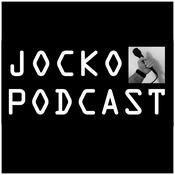94 episodes
- What do you do when the scoreboard won’t budge? We sit down with Cambridge head coach Craig Newby for an unfiltered look at leadership, culture, and performance in the middle of a 14-game winless run—and why this stretch might be the most rewarding of his career. Craig breaks down the simple, sturdy framework that keeps his team aligned: “Fit, Tight, Fight” as non-negotiable standards, and three big rocks—set piece, transition, and collisions—that shape every meeting, practice plan, and review. Instead of chasing every problem, he shows how focusing on controllable performance goals, GPS-informed training, and clear weekly rhythms builds confidence and intensity that survive results.
We talk about accountability without blame, and why silent pointing poisons a locker room. Craig shares how leader behavior sets the room’s temperature, why “no-rugby Sundays” protect mindset, and how rare, deliberate emotion lands better than constant fire. He explains how stacking “next job” layers into drills hardwires recovery after mistakes, and how a young leadership group can carry aligned messages onto the field without overtalking. The conversation moves from tactics to humanity—celebrating academy debuts and milestones, growing community support, and finding resilience when sport doesn’t give what you deserve.
At the heart of it all is authenticity. Craig owns a direct, transparent style that some might challenge, but it’s the anchor for trust and buy-in when losses mount. If you want a practical playbook for culture, leadership, and measurable improvement under pressure, this is it—clear, specific, and battle-tested. If this conversation gave you something useful, follow the show, share it with a coach who needs a lift, and leave a quick review to help others find it. What’s your one non-negotiable standard this season?
Send a text
For all your sports equipment and some of the most innovative rugby products going around, head to silverfernsports.com.
If you want to chat directly or explore options for your school or club, flick an email to [email protected]
.
Great gear. Built for coaches.
Support the show
Support those that support the show
For the very best rugby gear shop here: silverfernsports.com - What if the fastest way to a stronger culture isn’t a better speech but a better session plan? We take a hard look at Gordon Tietjens’ legendary methods with the All Blacks Sevens and unpack why brutal fitness, unbendable standards, and purpose‑driven training turned talent into titles—and teammates into family.
We start with the heart of Tietjens’ philosophy: the harder you work together, the closer you become. In sevens, effort is public and undeniable—everyone sees the chase, the clean, the reload. By holding stars and rookies to the same physical demands, he stripped away hierarchy and built humility. That shared suffering became a language of trust: when pressure hit, players didn’t need speeches; they knew who would still be there on the next sprint.
Then we dig into non‑negotiables and how clear standards protect culture from drift. Tietjens tied selection to objective benchmarks, removing gray areas and mixed signals. Culture, he argued, is not what you say but what you tolerate. When lines stay still, people stop testing them and start owning them. The result is cleaner accountability, faster buy‑in, and fewer distractions—less talk, more do.
Finally, we explore meaningful suffering and the craft of making training harder than the game. Pain without purpose breeds resentment; pain with purpose breeds resilience. Tietjens taught players to think while gasping, execute while doubting, and stay aware under stress so that matchday felt slower and simpler. Toughness became a skill, not a myth. We connect these lessons to modern coaching and leadership, showing how to blend empathy with edge: create shared effort, fix your non‑negotiables, and design stress that teaches.
If you care about building winning environments—on the field or at work—this reflection offers practical takeaways you can apply today. Subscribe, share with a coach or leader who needs it, and leave a quick review to tell us which standard you’d never bend.
Send a text
For all your sports equipment and some of the most innovative rugby products going around, head to silverfernsports.com.
If you want to chat directly or explore options for your school or club, flick an email to [email protected]
.
Great gear. Built for coaches.
Support the show
Support those that support the show
For the very best rugby gear shop here: silverfernsports.com - What if the hardest session you’ve ever done became the moment your team truly bonded? We sit down with Sir Gordon Tietjens, the architect of All Blacks Sevens dominance, to unpack a culture built on honesty, humility, discipline, and relentless work—and why those values still win when talent alone can’t.
Tietjens takes us inside his selection philosophy, revealing why character outruns hype in a sport decided by inches. He breaks down his traffic‑light model—greens who self‑drive, yellows who drift, reds who divide—and shows how clear standards, from nutrition to conditioning tests, create trust that sticks. With vivid stories about Jonah Lomu, Christian Cullen, and captain Eric Rush, we see how leadership from the front and non‑negotiables on fitness forged teams that treated every match like a final and delivered when it mattered most.
We also explore how to sell hard work to young athletes and their families, why care and demand must live together, and how rituals like haka and tournament simulations turn effort into identity. Tietjens contrasts the old school with today’s GPS‑driven limits and player leadership groups, offering a pragmatic path: choose athletes who will work, explain the why, and protect standards that protect performance. His experience shaping China’s high‑performance sevens program adds a global lens on buy‑in, recovery, and sustaining edge without burnout.
Expect a blueprint for coaches and leaders who want consistency over noise: set real standards, select for character, build trust with your captain, and let the jersey mean something. If this conversation hits home, follow the show, share it with a coach who needs it, and leave a review with your biggest takeaway.
Send a text
For all your sports equipment and some of the most innovative rugby products going around, head to silverfernsports.com.
If you want to chat directly or explore options for your school or club, flick an email to [email protected]
.
Great gear. Built for coaches.
Support the show
Support those that support the show
For the very best rugby gear shop here: silverfernsports.com - Pressure isn’t a detour in coaching—it’s the road itself. We open up about the weight leaders carry, from constant decision-making to public scrutiny, and why stress doesn’t signal failure but commitment. Instead of wishing problems away, we talk about building the muscle to walk through them, drawing on research-backed ideas about process-focused mindset shifts that shorten the emotional downtime after hard calls and tough losses.
From there, we get practical. We lay out how to build a clean on-off switch so coaching mode doesn’t follow you through the front door. Think small, deliberate rituals: write tomorrow’s first task, pause in the car before you walk in, leave your bag by the door, and, if work truly can’t wait, move it to a neutral space like a café. Presence at home isn’t a luxury; it’s a skill that strengthens your presence on the field. The sharper your boundaries, the clearer your judgment and the more patient your conversations with players, staff, and families.
We close with the third anchor: a controllable outlet that answers to effort. Training, running, lifting, reading, writing—anything with predictable feedback—gives your mind a stable win when sport gets chaotic. Set goals you own, track progress, and let that rhythm remind you that you’re more than a weekend’s result. Put together, these three habits—endure, disconnect, and control one thing—help you bounce back faster, coach with steadier energy, and enjoy the craft for the long haul.
If this resonated, follow the show, share it with a coach who needs it today, and leave a quick review so more people can find these tools. What’s your best switch-off ritual? We’d love to hear it.
Send a text
For all your sports equipment and some of the most innovative rugby products going around, head to silverfernsports.com.
If you want to chat directly or explore options for your school or club, flick an email to [email protected]
.
Great gear. Built for coaches.
Support the show
Support those that support the show
For the very best rugby gear shop here: silverfernsports.com - Ever feel like your work is judged on the tiniest slice of time while everything that matters happens in the shadows? We sit down with Sharks coach and leadership consultant Joey Mongalo to unpack how identity, conviction, and a clear model help leaders thrive under pressure—on the field and in the boardroom.
We start with the uncomfortable truth: people judge coaches on 80 minutes. Joey explains how he anchors himself by revisiting his track record to counter noise with facts, then shows why the strongest coaching rooms share pain, not blame. From there, we dive into the power of a pervasive model—the kind that dictates recruitment, training blocks, and language—so decisions get simpler and performance becomes coherent. Think Pep Guardiola’s keeper call, explained in detail and translated for any organization.
The heart of our talk is narrative and alignment. Joey makes a compelling case for “leading up”: enrolling boards and executives with a clear time horizon, milestones, and phrases they can repeat under fire. We frame strategy as story—plot, journey, characters, outcome—so fans, families, and teams know what to expect in year one versus year three. A Spurs ball boy moment becomes the blueprint: when everyone understands the model, everyone becomes a game‑changer.
We translate high performance sport into business with practical tools: move from silos to fences with doors, use shared language to build repeatable behaviors, and coach teams to manage work‑ons, maximize strengths, and then mold and mobilize others. Joey’s Team IP3 framework—Identity, Purpose, Philosophy, Process—ties it together, giving leaders a simple way to align at the top and create cohesion on the ground. We close by reframing adversity: life is unfair and leadership is tough, which is exactly why clarity and courage are competitive advantages.
If this conversation helps you sharpen your model or your message, share it with a leader who needs it, subscribe for more culture-first coaching talks, and leave a review with your three-word model—we’ll feature our favorites next time.
Send a text
For all your sports equipment and some of the most innovative rugby products going around, head to silverfernsports.com.
If you want to chat directly or explore options for your school or club, flick an email to [email protected]
.
Great gear. Built for coaches.
Support the show
Support those that support the show
For the very best rugby gear shop here: silverfernsports.com
More Business podcasts
Trending Business podcasts
About Coaching Culture with Ben Herring
Coaching Culture with Ben Herring is your weekly deep-dive into the often-overlooked “softer skills” of coaching—cultural innovation, communication, empathy, leadership, dealing with stress, and motivation. Each episode features candid conversations with the world’s top international rugby coaches, who share the personal stories and intangible insights behind their winning cultures, and too their biggest failures and learnings from them. This is where X’s and O’s meet heart and soul, empowering coaches at every level to foster authentic connections, inspire their teams, and elevate their own coaching craft. If you believe that the real gold in rugby lies beyond the scoreboard, Coaching Culture is the podcast for you.
Podcast websiteListen to Coaching Culture with Ben Herring, Planet Money and many other podcasts from around the world with the radio.net app
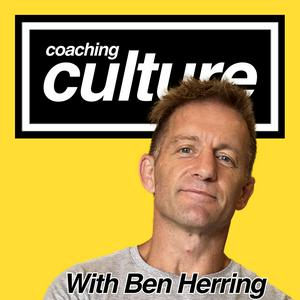
Get the free radio.net app
- Stations and podcasts to bookmark
- Stream via Wi-Fi or Bluetooth
- Supports Carplay & Android Auto
- Many other app features
Get the free radio.net app
- Stations and podcasts to bookmark
- Stream via Wi-Fi or Bluetooth
- Supports Carplay & Android Auto
- Many other app features


Coaching Culture with Ben Herring
Scan code,
download the app,
start listening.
download the app,
start listening.




